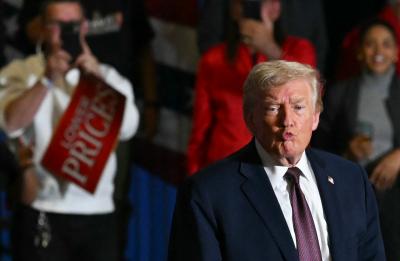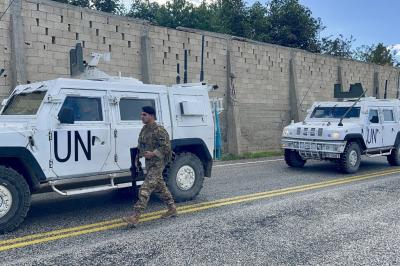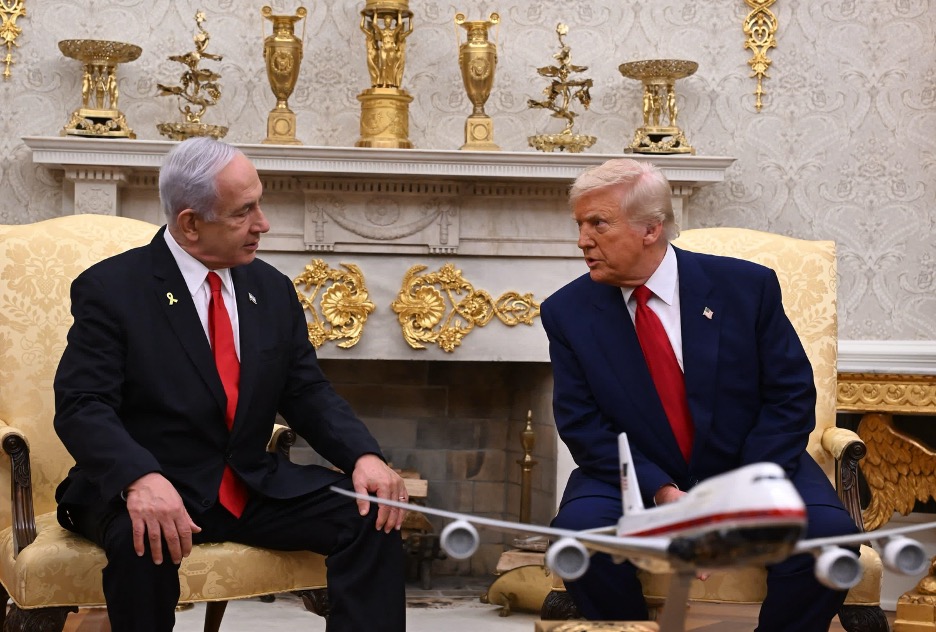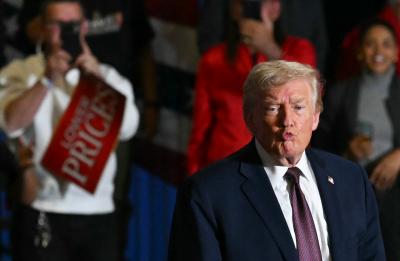Nearly five years have passed since U.S. President Donald Trump attempted to push through what became known as the “Abraham Accords” or the “Deal of the Century”—an initiative aimed at establishing "lasting peace" in the region between Israel and Arab states, particularly those in the Gulf.
In 2020, as Trump neared the end of his first term, he sought to secure a foreign policy win to boost his re-election bid. At the time, Israeli Prime Minister Benjamin Netanyahu was also in office. That summer, Trump moved quickly, sensing the heat of the upcoming race against Democratic challenger Joe Biden. Between September and December, he managed to broker normalization agreements between Israel and the UAE, Bahrain, Morocco, and Sudan.
However, the Accords fell short of delivering lasting results for two main reasons: first, the transition of power to Biden, who despite endorsing the agreements did little to activate them; and second, the lack of progress on the Palestinians' core demands—without which comprehensive peace remained out of reach.
American voters gave little weight to the accords, and Trump lost the election. But he resumed his efforts with renewed zeal, positioning himself as the global peacemaker.
At their core, the Abraham Accords are normalization deals between Israel and Arab countries, beginning with the Gulf, in hopes that others would follow the lead of Egypt and Jordan—but with broader and deeper normalization.
Arab Commitment to the Peace Initiative
Most Arab states, especially Saudi Arabia, have remained firmly committed to international resolutions and the 2002 Arab Peace Initiative adopted at the Beirut Summit. That initiative outlines a roadmap to normalized ties with Israel—but only after the creation of a Palestinian state. Trump, by contrast, sought to reverse the formula: strike deals with Arab nations first, hoping the pressure would force Palestinians to accept the proposed terms.
But during a more recent visit to the region, Trump reportedly realized that the equation is far from simple. Any success, he was told, must begin with progress on the Palestinian front—namely ending the war on Gaza and initiating reconstruction.
As of today, the normalization deals signed between Israel and the four Arab countries are effectively frozen. The original vision—lowering regional tensions through new arrangements that offer strategic benefits, protection from Iranian threats, and advanced tech and trade opportunities—has stalled.
Momentum Interrupted by “Al-Aqsa Flood”
Relations between the signatory nations and Israel strengthened up until October 7, 2023—the date of the “Al-Aqsa Flood” operation. That same year saw high-level visits, deepening bilateral and multilateral ties, and even interfaith dialogues aimed at paving the way for trade and academic cooperation.
Both American and Israeli officials considered this a major achievement. Trade surpassed \$4 billion, growing 16% annually. In the first three quarters of that year alone, trade rose by 24%, before dropping by 4% in the final quarter—despite an 18% decline in Israel’s overall trade. Factoring in natural gas exports to Egypt and Jordan, defense deals, cybersecurity services, and software, the real value could have exceeded \$10 billion.
New free trade deals were signed, visa-free travel launched, and direct flight routes established. While many Israelis visited the accord-signing countries, only a limited number of tourists reciprocated by visiting Israel.
In Abu Dhabi, the “Abrahamic Family House” was inaugurated. The UAE-Israel Comprehensive Economic Partnership Agreement went into effect, and multilateral cooperation frameworks were launched—including the Negev Forum and cybersecurity and national security meetings among accord countries. Initiatives like the India-Middle East-Europe Economic Corridor (IMEC) expanded the partnerships further.
Morocco’s main incentive was gaining U.S. recognition of its sovereignty over Western Sahara. The agreement with Israel influenced the stance of key international players, largely due to American pressure. Still, cooperation remained minimal in fields such as security, economy, and academia, with a marked decline in tourism.
Sudan’s path was hampered by internal war and instability. Its main motivation was the lifting of U.S. sanctions, which Washington did by removing Sudan from its list of state sponsors of terrorism.
As for Bahrain, it never officially withdrew from the accords, even after expelling the Israeli ambassador and severing economic ties. Some cooperation, particularly in the security field, has continued.
Saudi and Syrian Hesitations
The turning point came with the “Al-Aqsa Flood,” which aimed in part to derail the Abraham Accords altogether. Since then, momentum—both popular and official—has declined sharply. Trump’s attempts to rope in Saudi Arabia and Syria have failed.
Saudi Arabia remains the key Arab player without whose participation no breakthrough can occur. Riyadh insists on the Arab Peace Initiative, originally spearheaded by King Abdullah. With Netanyahu still in power and military operations continuing unabated, Saudi Arabia sees no urgency to join. Moreover, it has numerous strategic cards to play in the region—engagements with Iran, Syria, China, Russia, and international groupings, not to mention its special relationship with both Washington and Trump himself.
To persuade Saudi Arabia to join the accords, several conditions must first be met: a ceasefire, reconstruction in Gaza, and a credible Israeli partner for peace willing to engage the Palestinian Authority. These are the essential first steps toward peace. Without them, Saudi normalization remains off the table.
As for Syria, the newly emerging leadership in Damascus faces more pressing priorities—like the continued Israeli occupation of its territory, reintegration into the Arab world, and the unresolved Palestinian issue. These complex factors make Syrian accession highly unlikely, despite ambiguous official rhetoric. Damascus appears content to reap the benefits of reduced sanctions and prospects for reconstruction, economic recovery, and political stability—without fully committing to normalization with Israel.
Please post your comments on:
[email protected]
 Politics
Politics












